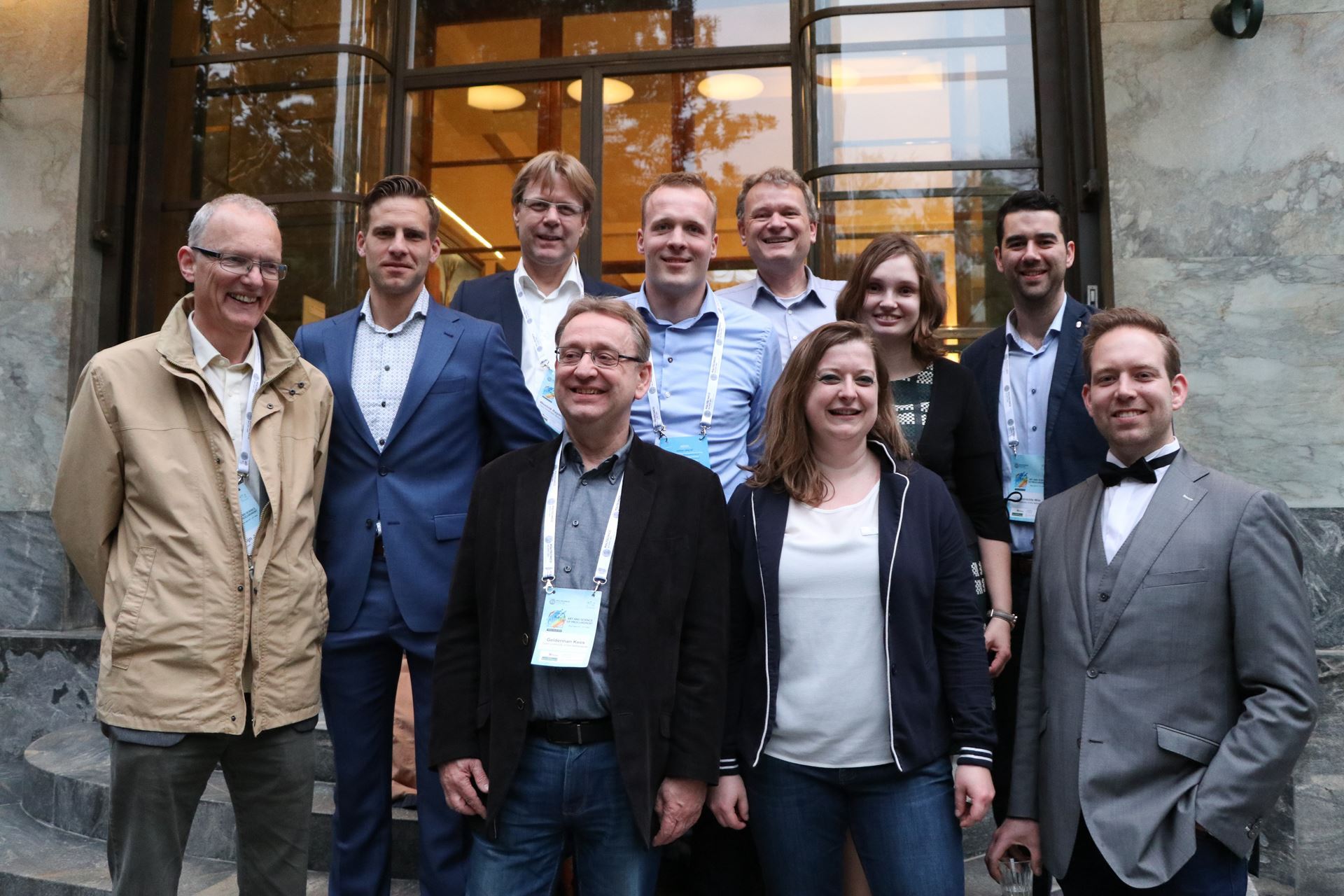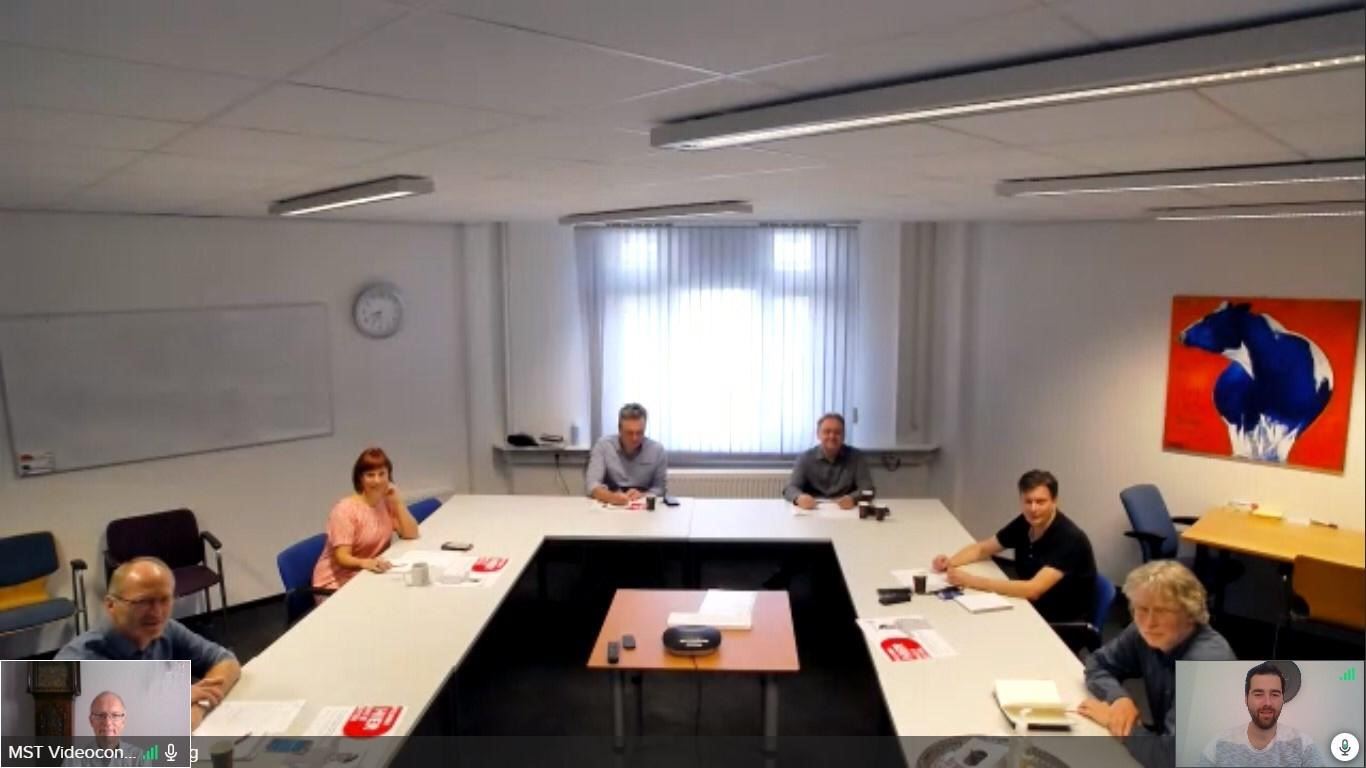The SCM team of the Open Universiteit (SCM@ou.nl) has been a solid presence at many past IPSERA conferences. Typically, throughout the year, we help and motivate our best MSc students to turn their theses into IPSERA submissions, while encouraging them to present their work in person. During these challenging COVID times we were forced to turn virtual in everything we do.

The Open University of the Netherlands is a world leading organization in online education and research, with students from the Euregion. The yearly Dutch and Flemish student enrolment is around 15.000. The OU is one of the top universities in the Netherlands in official University Selection Guide with respect to its master programmes. The educational programmes in management and science rank highest in the country, with several having the predicate ‘topopleiding’ (top programme). The research is formulated within the program “Learning and Innovation in Resilient Systems” (LIRS). It focuses on multi-, inter-, and transdisciplinary aspects in the domains of sustainability, services and supply chain, social learning and learning regions.
The Supply Chain Management team (core members: Kees Gelderman, Paul Ghijsen, Harold Krikke, Wim Lambrechts, Jelle Mampaey, Kim Janssens, Jos Schijns, Janjaap Semeijn) at the OU is particularly dedicated to the following themes and areas: Public Procurement/Ethical and Sustainable Sourcing/Circular Business Models/Circular Purchasing/Performance Based Contracting/Procurement in Higher Education/Sustainable Supply Chain Management/Closed Loop Supply Chains.
Research output
Each year, we are supervising about 40 new thesis students in the areas of Supply Chain sustainability, purchasing management, public procurement, co-creation, circular purchasing and the like. Our popularity with the distance learning students (at bachelor and master level) at the OU keeps us busy during these challenging Covid-19 times. We regularly publish with our MSc graduates as well. We supervise PhD students who focus on sustainability, circularity and public procurement. This year, we witnessed the successful PhD defenses of Victor Verboeket (3D printing & Supply chain disruption) and Petra Neessen (Circular Purchasing). Rob Vluggen is making excellent progress towards the completion of his dissertation: Public sector procurement and sustainability development.
Publications this year appear in the Journal of Purchasing and Supply Management, Journal of Cleaner Production, Sustainability, British Food Journal, Journal of Public procurement, Behavioral Sciences, etc.
The Dutch Research Council (NWO) recently approved our proposal named CoLoSus (Compentences inLogistics & Sustainability). The project is granted within the Future of Work funding instrument, which is part of the NWO’s Human Capital program. The projectfocusses on innovations in learning communities in logistics and supply chain sector. We are now ready to engage two ambitious scholars in December 2020 (one PhD student and one Post Doc researcher) to explore required individual competences (related to sustainability, empowerment and resilience) for a future of sustainability in logistics and supply chains.
Conference contributions
The SCM team of the OU has been present at the pastIPSERA conferences, both with faculty members and master students presenting their work. Members of the team have been session chairs in the area of public procurement, buyer-supplier relationships, and sustainable supply chain management.
In 2020, A thematic session on “Aligning elements of circular business models” was prepared at the annual and virtual NBM Conference (chairs: Harold Krikke & Wim Lambrechts). The session included the following presentations:
- The role of buyer-supplier relationship management as a means to enhance the implementation of circular business models;
- Can circular touch points create customer values in healthcare?
We submitted 4 competitive papers to the IPSERA conference 2020, to be held in Knoxville. Although the conference was cancelled due to the Covid-19 crisis, two papers received a special award. The paper “Successful circular purchasing: about the purchasers’ role, behaver, drivers and constraints from an individual perspective” by Neessen et al. received the overall Best Paper Award. The paper “The impact of buying power on corporate sustainability - the mediating role of suppliers’ traceability information” by Van Hal et al. received the IFPSM Award for Paper with Strong Managerial Implications.
Our plans for the near future include a thematic session at the next LIRS Symposium (2021), covering topics of circular/sustainable/ethical purchasing.

